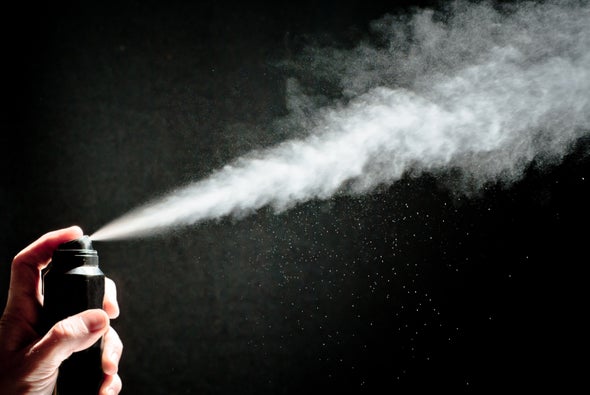This is Scientific American's 60-second Science, I'm Christopher Intagliata.
You hear a lot about how what you eat will affect your microbiome. Probiotics. Prebiotics. Stuff like that. But your skin is swarming with microbes too—and the grooming products you use might affect what's living there. That's according to a study in the journal BMC Biology.
For their tests, researchers recruited six men and six women. The volunteers left their skin alone for the first three weeks except for a light body wash. Then, for the next three weeks, the participants applied a modern skincare arsenal: sunscreen and skin lotion, antiperspirant and foot powder. Finally, the volunteers returned to their usual routine, whatever it was for each person, for another three weeks.

Throughout that time the scientists swabbed the volunteers' faces and forearms, armpits and feet. Then they did chemical and genetic analyses of the samples. The lotion and sunscreen did not appear to alter the microbiome. But they found, counterintuitively, that the antiperspirant and foot powder actually boosted the diversity of microbes in the armpits and in between the toes—perhaps because those products change nutrient and moisture levels and thus create conditions that foster a wider variety of tiny occupants.
The researchers also found that different skin care routines altered the types of hormones and pheromones present on the subjects' skin. And they hypothesize that someday, personalized skin-care recipes could be tailored to individuals to alter our pheromones in a systematic way, thus making us more attractive to others. Or less attractive, should anyone need to lessen their kavorka. (Seinfeld clip: "Yes, kavorka." "Kavorka?" "It is a Latvian word which means 'the lure of the animal.'")
Thanks for listening for Scientific American — 60-Second Science. I'm Christopher Intagliata.












